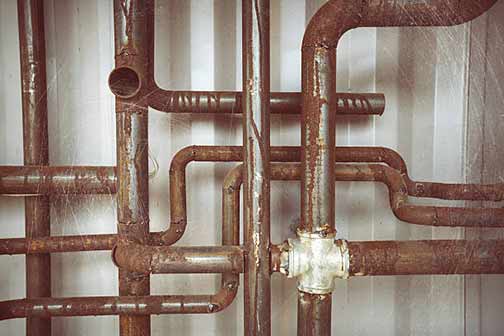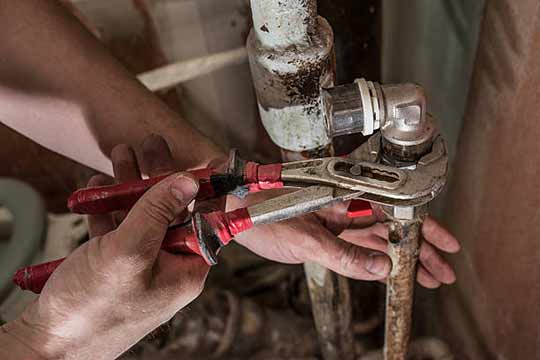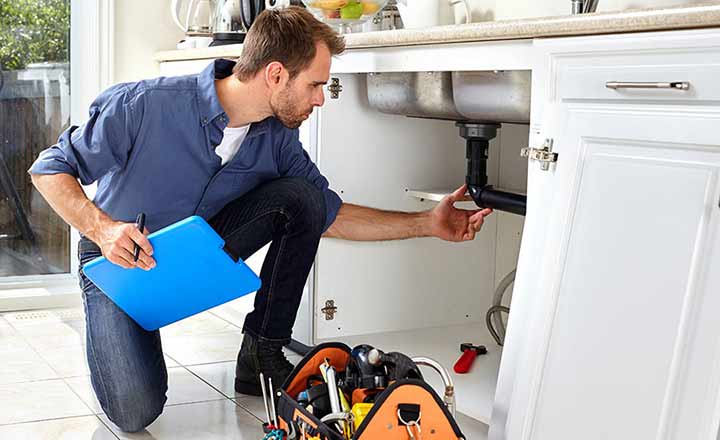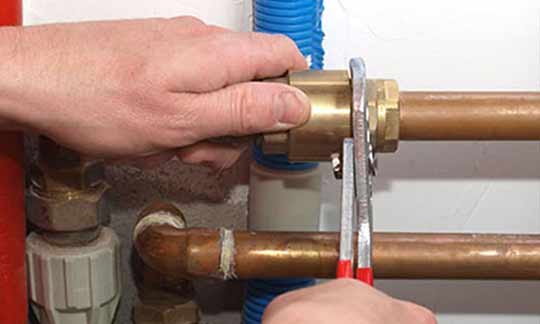Understanding the Unique Challenges of Aging Plumbing Systems
Aging plumbing systems present a unique set of challenges that can lead to significant stress and inconvenience if not properly managed. Over time, pipes and fixtures can deteriorate, resulting in leaks, clogs, and other issues that can disrupt daily life. Recognizing these challenges and understanding their causes is the first step in effectively reducing stress in older plumbing systems. Factors such as material degradation, corrosion, and outdated technology play a crucial role in the wear and tear of these systems. Understanding the specific vulnerabilities of an aging plumbing system allows homeowners to take targeted actions to mitigate potential problems.
Regular Inspections and Preventive Maintenance for Aging Plumbing Systems
One of the most effective ways to reduce stress in aging plumbing systems is through regular inspections and preventive maintenance. By routinely checking for signs of wear and tear, such as rust, corrosion, and leaks, homeowners can address potential problems before they escalate. It’s advisable to schedule professional inspections at least once a year to ensure that all components of the plumbing system are in good condition. Preventive maintenance tasks, such as cleaning aerators, flushing water heaters, and inspecting shut-off valves, can help maintain the system’s efficiency and longevity. Regular maintenance not only prevents major issues but also helps identify areas that may need upgrading or replacement.
Upgrading Outdated Fixtures in Aging Plumbing Systems
Older plumbing systems often include outdated fixtures that are more prone to failure. Upgrading these fixtures to modern, more reliable options can significantly reduce the likelihood of issues. For example, replacing old faucets, showerheads, and toilets with new, water-efficient models can not only improve functionality but also conserve water and reduce utility bills. Modern fixtures are designed to withstand wear and tear better and often come with advanced features that enhance convenience and efficiency. Investing in high-quality fixtures can provide long-term benefits and reduce the need for frequent repairs.
Addressing Water Pressure Issues in Older Plumbing Systems
High water pressure can put undue stress on aging pipes, leading to leaks and bursts. It’s important to monitor water pressure and ensure it remains within a safe range. Installing a pressure-reducing valve can help regulate water pressure and protect the plumbing system from damage. Additionally, homeowners should be aware of any sudden changes in water pressure, as this could indicate a problem that needs immediate attention. Regularly checking water pressure and making necessary adjustments can prevent significant damage and extend the life of the plumbing system.
Dealing with Corrosion and Rust in Older Home Plumbing Systems
Corrosion and rust are common issues in older plumbing systems, particularly those with metal pipes. These problems can weaken pipes and lead to leaks and blockages. Regularly inspecting pipes for signs of corrosion and rust is crucial. If corrosion is detected, it may be necessary to replace affected sections of pipe or consider repiping the entire home plumbing system with more durable materials, such as copper or PEX. Using corrosion-resistant materials and implementing protective measures, such as applying anti-corrosion coatings, can help mitigate these issues and ensure the plumbing system remains functional.
Preventing Clogs and Blockages in Aging Plumbing Drain Systems
Clogs and blockages are frequent issues in aging plumbing systems. To prevent these problems, it’s important to be mindful of what goes down the drains. Avoid flushing non-degradable items, such as wipes and feminine hygiene products, and use drain screens to catch hair and debris. Regularly cleaning drains with a mixture of baking soda and vinegar can also help keep them clear and free-flowing. Implementing good habits, such as not pouring grease down the sink and using a plunger to clear minor clogs, can prevent major blockages and maintain the system’s efficiency.
Insulating Pipes to Prevent Freezing
In colder climates, freezing pipes can be a major concern for older plumbing systems. Insulating pipes in unheated areas, such as basements, attics, and crawl spaces, can help prevent them from freezing and bursting. Additionally, during extreme cold weather, it’s advisable to let faucets drip slightly to keep water moving and reduce the risk of freezing. Using heat tape or pipe sleeves can provide additional protection against freezing temperatures. Taking these preventive measures can safeguard the plumbing system and prevent costly repairs due to a burst pipe emergency.

Insulating pipes in unheated areas, such as basements, attics, and crawl spaces, can help prevent them from freezing and bursting.
Managing Tree Root Intrusion in Older Sewer Systems
Tree roots can infiltrate and damage plumbing systems, particularly in older homes with clay or cast iron pipes. To manage tree root intrusion, it’s important to be aware of the location of trees and their root systems in relation to the plumbing. Regularly inspecting sewer lines with a camera can help detect root intrusion early. In some cases, it may be necessary to remove trees or install root barriers to protect the plumbing system. Using root-killing chemicals and maintaining a safe distance between trees and plumbing lines can also help prevent root-related damage.
Using Water Softeners to Combat Hard Water in Aging Plumbing Systems
Hard water can cause mineral buildup in pipes and fixtures, leading to reduced water flow and increased wear and tear. Installing a water softener can help combat the effects of hard water by removing minerals such as calcium and magnesium. This can extend the lifespan of the plumbing system and reduce the need for frequent repairs. Regularly maintaining the water softener and monitoring water hardness levels can ensure optimal performance and protect the plumbing system from the damaging effects of hard water.
Implementing Preventive Measures for Old Plumbing Systems
In addition to regular maintenance and upgrades, implementing preventive measures can help reduce stress on aging plumbing systems. This includes using strainers in sinks and tubs to catch debris, avoiding the use of harsh chemical drain cleaners, and being mindful of water usage. Educating all household members about proper plumbing practices can also go a long way in preventing issues. Simple habits, such as running cold water while using the garbage disposal and not overloading the dishwasher, can prevent unnecessary strain on the plumbing system and maintain its efficiency.
Seeking Professional Assistance for Aging Plumbing Systems
While some plumbing maintenance tasks can be handled by homeowners, it’s important to seek professional assistance for more complex issues. Licensed plumbers have the expertise and tools needed to diagnose and repair problems effectively. Establishing a relationship with a trusted plumbing professional can provide peace of mind and ensure that any issues are addressed promptly and correctly. Professional plumbers can also offer valuable advice on maintaining and upgrading the plumbing system, helping homeowners make informed decisions and avoid costly mistakes.
Planning for Future Upgrades in Older Home Plumbing Systems
As plumbing systems continue to age, it may become necessary to plan for more extensive upgrades or replacements. Developing a long-term plan for plumbing improvements can help spread out the costs and minimize disruptions. This might include repiping the entire system, upgrading to modern fixtures, or installing advanced water filtration systems. Planning for future upgrades ensures that the plumbing system remains functional and efficient, and allows homeowners to budget for necessary improvements without financial strain.
Understanding the Importance of Water Quality in Aging Plumbing Systems
Water quality can have a significant impact on the longevity and performance of plumbing systems. Contaminants such as chlorine, sediment, and bacteria can cause damage to pipes and fixtures over time. Installing water filtration systems can help improve water quality and protect the plumbing system. Regularly testing water quality and addressing any issues promptly is also essential. Ensuring that the water supply is clean and free from harmful substances can prevent corrosion, buildup, and other issues that can compromise the integrity of the plumbing system.
Maintaining a Plumbing Emergency Kit for Aging Plumbing Systems
Being prepared for plumbing emergencies can help reduce stress and minimize damage. A well-stocked plumbing emergency kit should include items such as a plunger, pipe wrench, plumber’s tape, and a bucket. Knowing how to shut off the water supply and having the contact information for a reliable plumber readily available can also be invaluable in an emergency. Being prepared for unexpected plumbing issues allows homeowners to respond quickly and effectively, reducing the potential for significant damage and costly repairs.
Educating Household Members About Older Home Plumbing
Educating all household members about proper plumbing practices is crucial for maintaining an aging plumbing system. This includes teaching them what can and cannot be flushed or poured down drains, how to recognize signs of plumbing issues, and the importance of conserving water. By fostering a culture of awareness and responsibility, homeowners can help prevent unnecessary stress on their plumbing systems. Encouraging good habits and providing clear guidelines can ensure that everyone in the household contributes to the care and maintenance of the plumbing system.
To Wrap It Up
Reducing stress in aging plumbing systems requires a proactive approach that includes regular inspections, maintenance, and upgrades. By understanding the unique challenges of older plumbing systems and implementing expert tips, homeowners can effectively manage and minimize common issues. With proper care and attention, aging plumbing systems can continue to function efficiently and reliably for many years to come. Taking a proactive stance not only preserves the integrity of the plumbing system but also enhances the overall quality of life by preventing disruptions and ensuring a consistent water supply.



